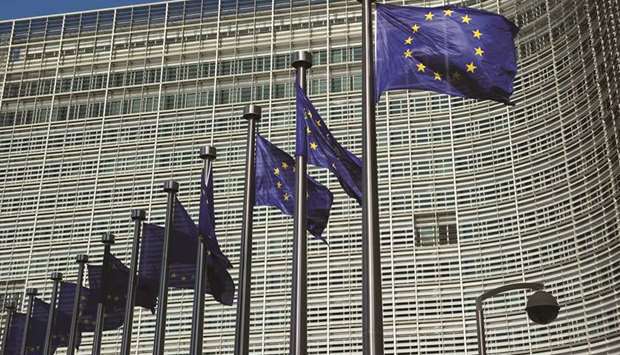After more than 13 hours of talks in Brussels, policy makers suspended negotiations on the reform, which would align the cap-and-trade programme with more ambitious climate goals for the next decade.
Representatives of EU nations and the European Parliament disagreed over issues including an emissions performance standard that would ban modernisation aid for coal-fired power plants, according to two EU officials, who asked not to be identified because the discussions were private.
Talks on the revamp, which includes provisions that would strengthen a special reserve of carbon permits and absorb a surplus of the allowances sitting in the market, will resume on November 8, according to two other EU officials, who spoke on the condition of anonymity, citing policy.
The International Emissions Trading Association urged EU policy makers to “redouble their efforts” and reach a deal at the next round of talks, in time for the UN annual climate meeting. Envoys from more than 190 countries are set to gather in Bonn, Germany, from November 6-17 to discuss the implementation of the Paris Agreement to cut greenhouse gases blamed for global warming.
“An agreement is needed to send a strong signal that the EU is serious about its leadership role in the international climate policy arena and in helping make the Paris Agreement a success,” IETA president Dirk Forrister said in a statement.
The draft reform aims to bolster the world’s largest carbon market, which has seen prices for permits plunge about two-thirds over the past nine years amid an economic slowdown that weakened demand. Allowances for delivery in December fell as much as 4.5% to €7.08 a metric tonne on ICE Futures Europe in London, the biggest intraday drop since September 26.
The negotiators were “close to reaching an agreement” during the talks, but another meeting is necessary to resolve the remaining outstanding issues, said a spokeswoman for Estonia, which holds the EU rotating presidency until the end of this year. The policy makers meet in a format known as trilogue, which also involves the European Commission.
While negotiators in September conditionally backed a part of the reform that would tackle oversupply, they differ on the environmental stringency of the package. The final pact must balance the need for bolstering the market, protecting the competitiveness of European companies and ensuring financing for modernisation, they have said.
The EU Parliament wanted on Friday to make financing from a special modernisation fund available only to utilities whose emissions are below 450 grams of carbon dioxide per kilowatt hour, according to the EU officials who took part in the talks.
Estonia, negotiating on behalf of member states, argued that the emissions performance standard should be scrapped altogether. The two sides failed to find a compromise.
The proposals on the table were too weak, said Jytte Guteland, negotiator representing the Socialist group in the European Parliament. Lawmakers Gerben Jan Gerbrandy from the Liberal group and Bas Eickhout of the Greens were in tune with her, saying the assembly’s requirement is that the ETS mustn’t finance coal-fired power plants.
Poland, whose government lobbies for increasing the size of the modernisation fund, has argued EU rules on public aid rule out using ETS-related revenues to finance new coal projects. Energy minister Krzysztof Tchorzewski said last month the country should stop building new conventional coal-fired plants.
“The modernisation fund should serve its purpose and aside from financing renewable energy sources, it should also allow modernisation of existing power generation with the aim to reduce its impact on environment,” said Maciej Burny, director of the International Affairs Department at Poland’s biggest power utility PGE SA.
Under the partial agreement on strengthening the ETS reached last month, the number of available allowances swept into the so-called Market Stability Reserve will double over a five-year period starting in 2019.
From 2023, permits in the reserve will start expiring if they exceed the amount sold at auctions in the previous year. Nations will also have the option of cancelling permits linked to power plant closures.
EU flags fly outside the European Commission headquarters building in Brussels. The EU carbon allowances fell the most in almost three weeks after the bloc’s
negotiators failed to reach a deal yesterday to overhaul the region’s cap-and-trade programme, prolonging uncertainty over the fate of a plan to alleviate a market glut.

